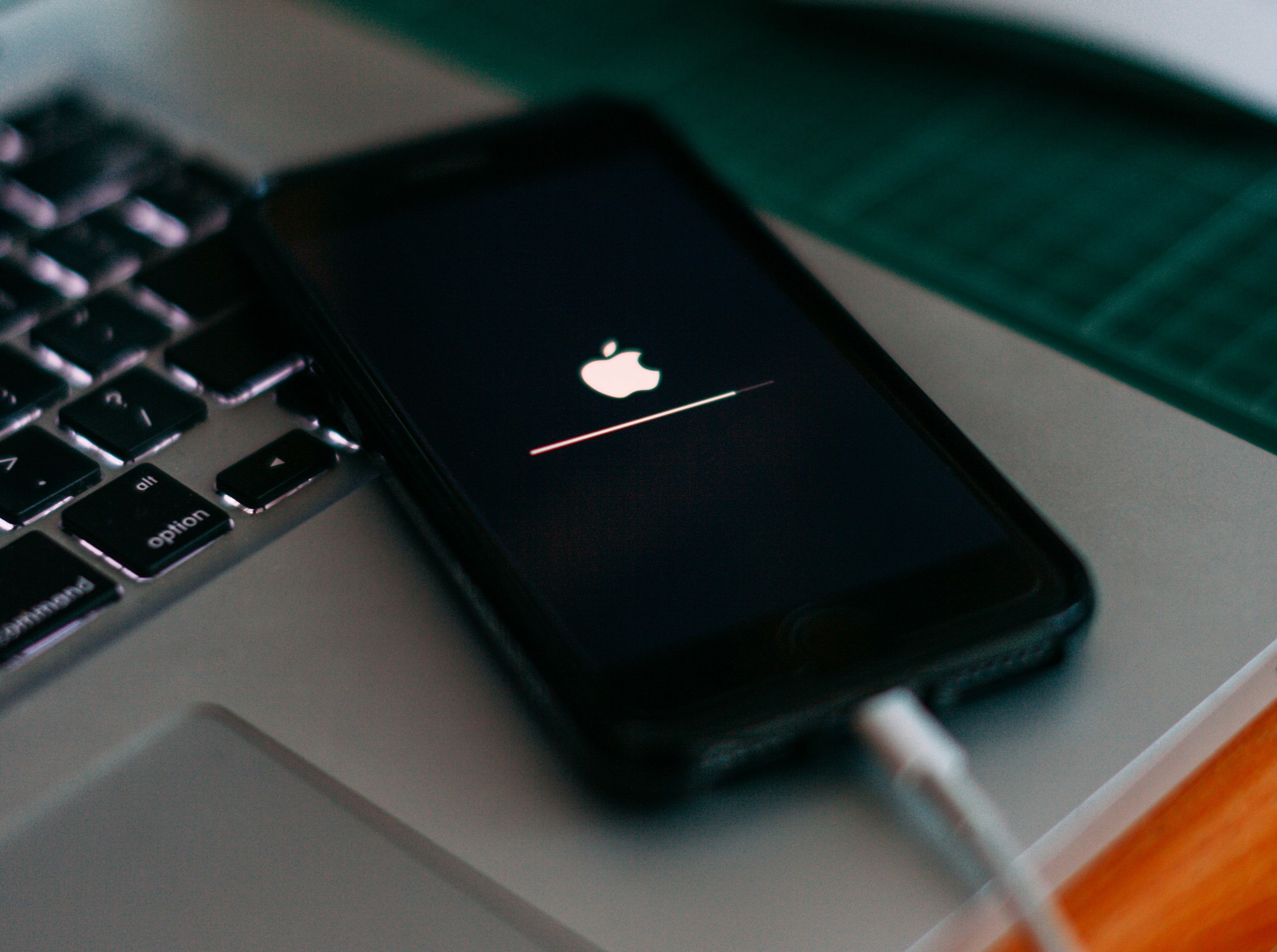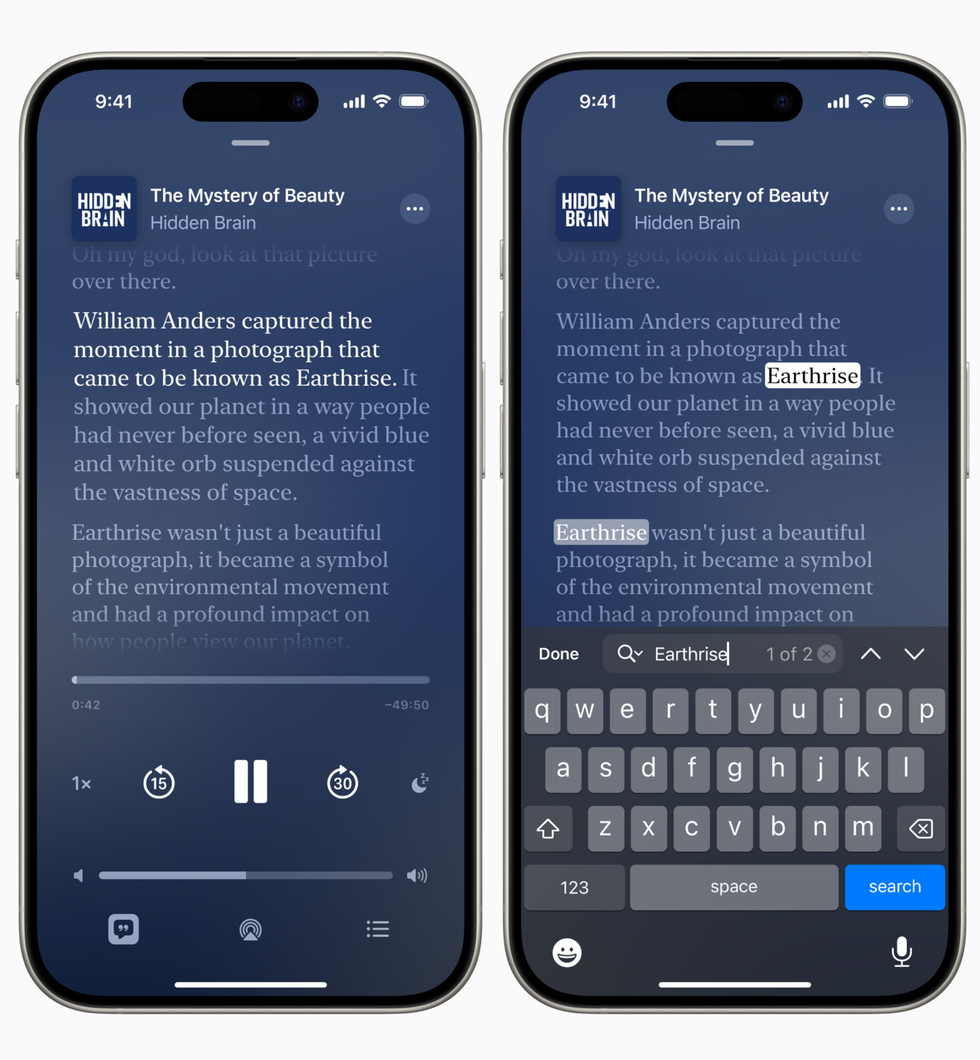Apple has launched its long-awaited iOS 17.4 update on the eve of the European Union's Digital Markets Act (DMA) coming into effect on March 7, 2024
APPLE | GBN | GETTY IMAGES
Apple has warned that Digital Markets Act will put iPhone owners at increased risk
- EU’s Digital Markets Act (DMA) comes into effect tomorrow, March 7
- Apple's iOS 17.4 update introduces seismic changes to comply with the law
- It lets iPhone download apps from outside of the App Store, dubbed "side-loading"
- iOS 17.4 also includes new emoji and adds transcriptions to Apple Podcasts
- Stolen Device Protection receives an update, blocking thieves from your device
- Apple has warned EU changes will “not be able to protect users in the same way”
- DMA changes only apply to 27 EU member states, with UK and USA missing out
Don't Miss
Most Read
Trending on GB News
Apple has released its game-changing iOS 17.4 update, which brings new emoji and enhanced security protection for iPhone owners globally — and a seismic shift to users living in Europe to comply with the European Union's Digital Markets Act (DMA). The law comes into effect tomorrow, March 7.
This European Union law requires vast multinational technology companies to break open previously closed ecosystems to give device owners more choice. To comply, Apple will be required to allow iPhone owners to download apps and make purchases from outside of its App Store, known as "side-loading".
Until now, iPhone owners have only ever been able to install apps and games from the App Store, which is preinstalled on all iOS devices. This allows Apple to vet all software before it's available to download on iPhones worldwide, helping it to maintain an iron grip on security, unapproved features, and taste.
Not only that but purchases made in the App Store must be done through Apple’s payment system — an approach known as a “walled garden”, which Apple argues allows it to keep users and their data completely secure. The DMA will also force Apple to allow alternative payment methods.
Apple has previously warned that complying with the legislation will make iOS more vulnerable to attack from scam artists and hackers. It warned that because it's being required to change its “uniquely successful approach” used to “protect users’ security and privacy”, it will “not be able to protect users in the same way”.

iPhone owners can download iOS 17.4 update now, although the biggest changes are reserved for those living in one of the 27 EU member states
UNSPLASH
The biggest changes in iOS 17.4 to comply with EU's DMA
- iPhone owners will be able to download iOS apps from outside of the App Stores, including direct from websites or new app marketplaces run by competitors, like Microsoft
- Apple will let users set Google Chrome, Microsoft Edge, Firefox and other popular apps as the default web browser on their iPhone
- Developers can use an engine other than Apple's own WebKit to build web browsers for iPhone, which could lead to Chrome and Firefox releasing new versions with their own technology for rendering sites — potentially offering faster performance
- App creators will be able to access the NFC chip inside the iPhone for wireless payments for the first time, enabling tap-to-pay transactions that don’t rely on Apple Pay
With iOS 17.4 installed, iPhone owners living in any of the 27 European Union member states will be able to download iOS applications from alternative marketplaces — not just the Apple App Store. The Californian company will continue to vet software designed for iPhone users by scanning for known malware.
However, the shift makes it critical to check the iOS apps you download more carefully. Reviews can be a good indication of whether an application is genuine. Google has long allowed users on its rival Android operating system to install applications from alternative sources, a process known as side-loading.
While Apple will continue to scan iOS applications for “known malware and security threats, generally functions as advertised, and doesn’t expose users to egregious fraud”, these new checks — a process known as "notarization" — will not cover the content within iOS apps. That means content that would never be sold in the App Store will appear within its iPhone operating system in the EU.
This means Apple won’t prevent iOS apps with content that Apple would never allow to be distributed within the App Store — like apps that offer access to pornography, apps that encourage consumption of tobacco or vapes, illegal drugs, or excessive amounts of alcohol, or apps that contain pirated content. For the first time since the launch of the iPhone, these types of apps could become available on alternative app marketplaces.
iPhone owners will now be able to download and install apps from third-party app stores not managed by Apple as part of a massive shift triggered by the EU's Digital Markets Act legislation on March 7, 2024
APPLE PRESS OFFICEThese fundamental changes within iOS 17.4 to comply with the European Union's DMA will enable rival technology companies, including Google, Amazon, and Microsoft to name just a few, to launch their own digital storefronts to distribute apps, ebooks, music and games on iPhone in Europe.
Several technology companies have previously accused Apple of maintaining a monopoly of the app market by not allowing rival app marketplaces or payment methods on the App Store. The European Commission argues that the DMA offers more and better services for consumers to choose from, and increases opportunities to switch providers if they so wish, which will ultimately lead to fairer prices and boost innovation in the sector.
Popular developer outfit MacPaw has already confirmed plans to become one of the first alternative marketplaces with its Setapp store coming to iPhone owners in Europe later this year. The company says its goal is “to establish a balanced app ecosystem where developers can thrive under a business model that promotes fairness and value, regardless of their size.”
Epic Games, the developer behind Fortnite, which infamously pulled its blockbuster mobile game from the App Store over an attempt to swerve Apple's 30% commission from digital transactions, has confirmed plans to launch its own iOS storefront. The marketplace — rumoured to launch in the coming months — could mark the return of Fortnite on iOS for the first time since August 2020.
Speaking to the Financial Times, Microsoft's gaming chief Phil Spencer previously confirmed plans to launch a separate store on iOS for mobile games when the Digital Markets Act legislation comes into effect. Until now, Apple's App Store policy has blocked Microsoft from launching its Xbox Game Pass service — a Netflix-like subscription that offers access to the latest blockbuster games from Microsoft-owned developers on launch day as well as a rotating catalogue of third-party titles — on iPhone.
Under the new system in the EU, Apple will also begin showing users pop-up, on-screen alerts when they're set to leave the walled garden of the App Store to download an app or make a payment outside of Apple's preinstalled systems. The Californian company said this will allow iOS users to make “educated choices about the apps they download”.
As well as the paradigm shift for European users, there are several smaller tweaks baked into iOS 17.4 that impact iPhone owners worldwide. Apple Podcasts will now support transcripts, and there are a few new emoji available to use throughout the operating system, including pictograms for a mushroom, phoenix, lime, broken chain, and shaking heads.
LATEST DEVELOPMENTS
- Streaming free trials could be killed off by shake-up from UK Government
- WhatsApp will block screenshots in certain parts of its app with next update
- Is Gmail shutting? Google issues statement after millions told email closing
- Ever owned a PlayStation? Check if you’re one of millions owed £500
- Windows 10 users facing new charges from Microsoft get lifeline from Google
Critically, the update to iOS also contains fixes for two flaws in iOS that are being exploited in attacks.
Even without the allure of new functionality and features, it's good practice to ensure you're running the latest version of the operating system to stay shielded from hackers.

iOS 17.4 brings transcripts to Apple Podcasts, allowing you to read along as you listen or search the entire script for keywords or passages
APPLE PRESS OFFICE
iOS 17.4 also makes an important change to Stolen Device Protection, first introduced with iOS 17.3 last year, designed to stop thieves from accessing any personal information if they get their hands on your device.
If someone manages to get their hands on your iPhone, you can lock them out by forcing a biometric check — either Face ID or Touch ID, depending on your model of iPhone.
With the launch of iOS 17.4, Apple has taken things even further. Until now, you would need to authenticate your identity with Face ID or Touch ID to change important settings, like your Apple ID, when using your iPhone in unfamiliar locations.
This preventative step was added to stop thieves from changing location settings or signing into a different Apple ID on a stolen device — blocking your ability to remotely wipe the gadget via iCloud. In iOS 17.4, you can always force the iPhone to require additional steps in any location.
Speaking about the addition, Global Cybersecurity Advisor at ESET Jake Moore said: “Apple has finally adhered to the pressure from police forces around the world who have firmly placed the onus back on the iPhone maker to build these expensive devices with the correct layer of protection.
"This minimizes the ease at which iPhones have been stolen in the past.”
This strict new security feature isn't enabled by default. If you want to switch it on, you'll need to head to Settings > Face ID & Passcode, ensure that Stolen Device Protection is enabled, then switch Require Security Delay to Always.
iOS 17.4 is available to download and install now. Launch the Settings app on your iPhone, then navigate to General > Software Update, and then start to download and install iOS 17.4. The operating system upgrade is 1.71GB, so it could take some time to download on slower internet connections.








